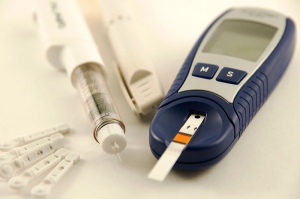By Mathew Keller, RN JD, MNA Nurse Policy Specialist
We all know the five rights of medication administration: right patient, right route, right dose, right time, and right medication. Right documentation is often added as a sixth right.
But how can an RN give the right dose if she or he has not checked the patient’s blood glucose? In the clinical setting, blood glucose monitoring is often a delegated task. Whether the task is delegated to the patient or another properly trained assistive personnel is within the nurse’s discretion.

Administering insulin based on an inmate’s self-reported blood glucose, however, presents an especially challenging ethical dilemma for nurses in a prison setting. On the one hand is the nurse’s duty to respect the patient’s autonomy. On the other hand is the nurse’s duty of beneficence and non-maleficence to that patient. And, of course, don’t forget that you can’t help other patients if you no longer have your license.
There are several avenues available to the Board of Nursing to discipline an RN who improperly administers medication due to an incorrectly reported blood glucose level.
Never forget that under the Nurse Practice Act, you and only you, are accountable for the quality of care delivered; [1] that discipline can result from failure to conform to “the minimal standards of acceptable and prevailing professional… nursing practice;” [2] and that the five rights of medication administration are minimum standards of acceptable nursing practice.
Adhering to the five rights for administration of insulin requires that the nurse has 100 percent confidence in the reported blood glucose in order to fulfill the “right dose” requirement. “Delegating… a nursing function or a prescribed healthcare function when the delegation… could reasonably be expected to result in unsafe or ineffective patient care” [3] is also grounds for discipline, including delegation of blood glucose monitoring.
If you, as an RN, have complete confidence in the self-reported blood glucose of an inmate, great. It is within your discretion to administer insulin to that patient. But please keep in mind that if you are ever wrong, if the inmate ever incorrectly self-reports, reports a blood glucose from six hours ago, or simply used improper methods to check his or her blood glucose, then you will fail to administer the right dose of medication.
Because of this, I highly advise all MNA members who work in prisons facing this issue to protect your license by having the inmate check his or her blood glucose in front of you. Checking the history of the blood glucose monitor is simply not enough: blood glucose results can be manipulated, perhaps in the way they are taken, perhaps in the device’s settings or time, perhaps in ways we are not even aware of.
Remember that you are accountable for the care you deliver, that the right dose requires you to know the right blood glucose, and that delegating a nursing function that could result in unsafe patient care is grounds for discipline.
[1]MN Statute § 148.171 Subd. 15(17)
[2]MN Statute § 148.261 Subd. 1(6)
[3] MN Statute § 148.261 Subd. 1(8)
